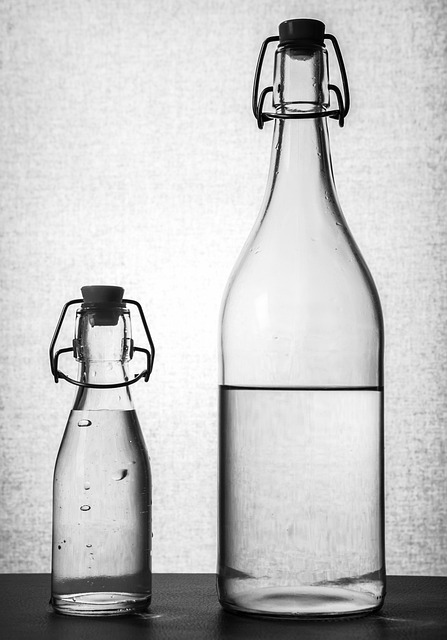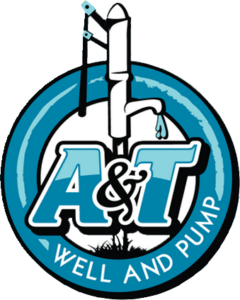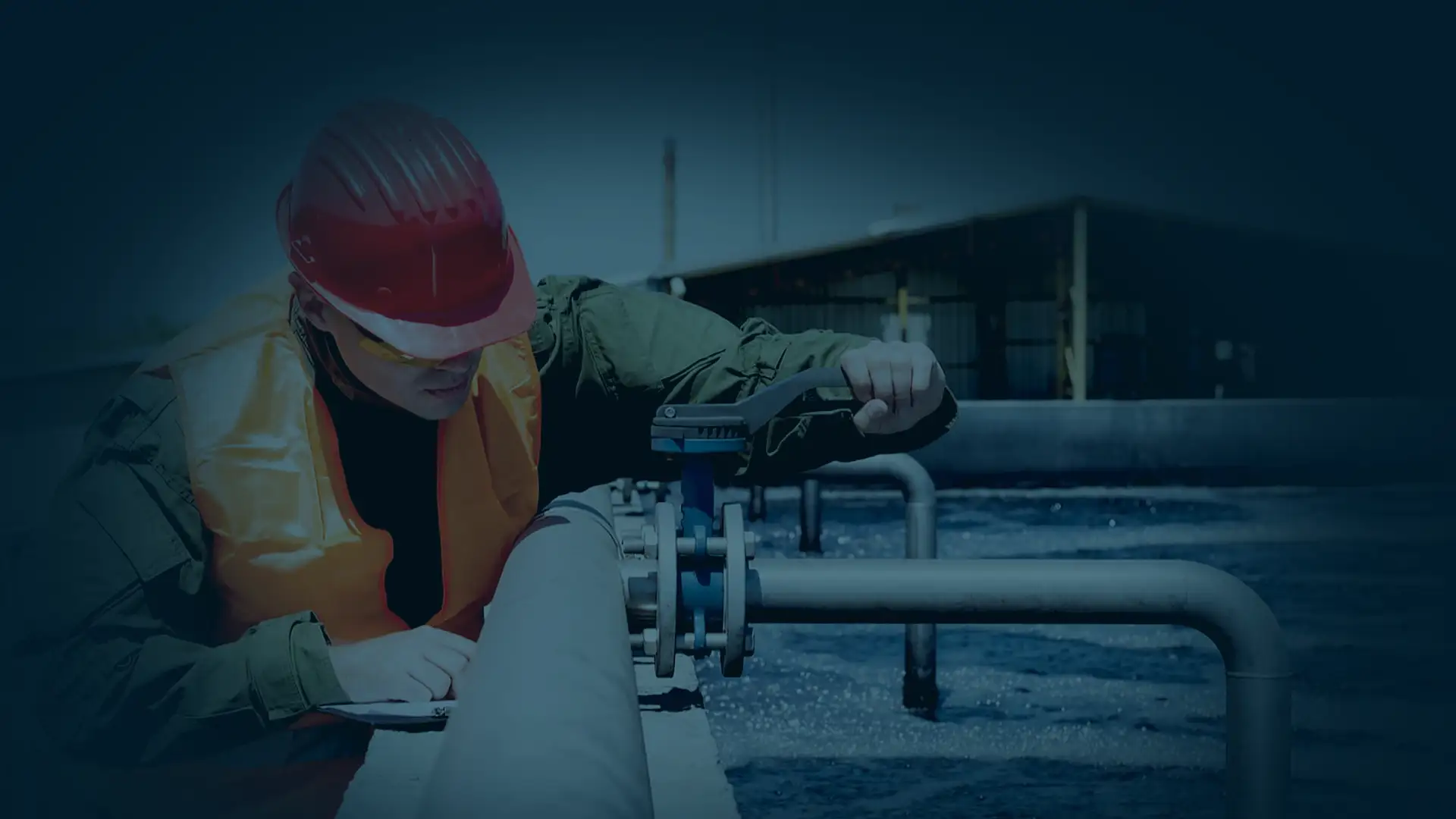If you are wondering how to improve well water quality, one of the primary things…
Clean and safe drinking water is essential for our health and well-being, and at A&T Well and Pumps of central North Carolina, we believe everyone deserves access to it. As a leading provider of well pump services, we understand the importance of maintaining and protecting the quality of your well water and preventing contaminated well water.
That's why we've put together this guide to provide you with valuable information on how to prevent contaminated well water. Whether you're a homeowner, farmer, or business owner, our practical tips and insights will help you keep your well water safe and free from harmful contaminants.
What Can Cause Well Water Contamination?
Contaminated well water happens when there is the presence of harmful substances in the water supply that can pose a threat to human health and the environment. These harmful substances can include bacteria, viruses, chemicals, heavy metals, and other pollutants that may originate from natural or human sources.
It is essential to regularly test the water quality of wells and take preventative measures to avoid contamination. Proper well construction and maintenance, waste disposal practices, and agricultural practices can all play a critical role in preventing water well contamination. Regular well water testing can also help identify potential contaminants early on and allow for prompt corrective action before problems become too costly.

Natural Causes of Contaminated Well Water
The geological features and composition of the land around the well can impact the quality of the well water. For example, water wells located in areas with soft or acidic soil may be more vulnerable to contamination from heavy metals such as lead and arsenic. Additionally, climate factors such as rainfall and temperature can also impact water quality. For example, excessive rainfall can cause runoff of pollutants into the groundwater, while drought conditions can cause the concentration of contaminants to increase in the remaining groundwater.
Human Causes of Contaminated Well Water
The use and improper disposal of chemicals can lead to contamination of well water. Chemicals used in farming such as fertilizers and pesticides can seep into the groundwater and contaminate the well.
Household chemicals, such as cleaners and solvents, can also pose a risk if not disposed of properly, as well as industrial chemicals and waste.
Other man-made causes of contaminated water in wells is due to poorly designed or maintained septic systems, as well as improper disposal of waste.
Agricultural activities including the use of pesticides and herbicides, fertilizers, and manure can contaminate well water, as these substances can leach into the groundwater.
Landfill Contamination
Although there are many different rules in place that are designed to protect the groundwater that supplies wells, the water supply can still become contaminated. This is due to landfill leachate, a liquid by-product of waste decomposition that can contain bacteria and hazardous chemicals. It can enter the groundwater near a landfill as garbage decomposes. The best way to prevent this from happening is to ensure that your well is installed as far away as possible from local landfills.
Septic Systems
Failing septic systems can cause problems with well water. If septic tanks have cracks or are not working properly, they will not remove all hazardous bacteria from wastewater, which can seep into the water supply. Wastewater that surfaces in the yard during septic system back-ups can enter your well through cracks, leading to well water contamination. The best way to prevent this from happening is to check local regulations and ensure that your well is located the required distance away from your septic system. Also, have your septic system inspected regularly the ensure that it is working properly so that it can remove harmful bacteria from wastewater before it is discharged into the soil.
Signs of Contaminated Well Water

It is essential to monitor the quality of well water regularly to detect any signs of well water contamination. Signs of contaminated well water can include changes in water quality, taste, odor, or color, as well as various health problems.
Changes in Water Quality
One of the most noticeable signs of contaminated well water is a change in water quality. This can include increased turbidity or cloudiness, the presence of sediment or debris, and changes in pH levels. If you notice any significant changes in water quality, have the water tested immediately to identify any potential contaminants. Waiting can put you and your family’s health at risk.
Changes in Water Taste, Odor, or Color
Contaminated well water may have a distinct taste, odor, or color that is different from what you are used to. For example, the water may have a metallic taste or a musty odor. Discoloration of the water can also be a sign of contamination, such as brown or yellowish water. If you notice any of these changes, it is essential to get your well water tested to address the root of whatever the problem is.
The Presence of Health Problems
Exposure to contaminants can pose various health risks, depending on the type and level of contaminants present. Some common symptoms of exposure to contaminated well water include:
- Gastrointestinal problems such as diarrhea and vomiting
- Skin rashes
- Respiratory problems
- Neurological disorders
If you or anyone in your household experiences any of these symptoms, seek medical attention immediately and have your well water tested.
Preventing Contaminated Well Water
Preventing contaminated well water is crucial to ensure that the water remains safe and healthy for consumption and bathing. Proper maintenance and well construction, as well as responsible waste disposal and agricultural practices, can help prevent well water contamination.
Proper Well Construction and Maintenance
Proper well construction and maintenance can help prevent contaminants from entering the well.
Here are some tips on how to ensure the prevention of water well contamination:
- Well location: The location of the well can have a significant impact on the quality of well water. Wells should be located away from potential sources of contamination such as septic systems, livestock pens, and fuel storage tanks.
- Well cap: A properly installed well cap can prevent the entry of foreign materials, such as insects and debris, into the well.
- Grading around the well: Proper grading can help prevent surface water from entering the well. The area around the well should be sloped away from the well to prevent standing water.
- Annual well inspections: Regular inspections can help identify potential issues such as cracks in the well casing, which can allow contaminants to enter the well.
Proper Waste Disposal
Proper waste disposal can help prevent contaminants from entering the groundwater. This can include responsible disposal of hazardous waste, such as batteries and chemicals, and household waste such as medications and cleaning products. Hazardous waste should be disposed of at designated facilities to prevent contamination of groundwater. Household waste, such as cleaning products and medications, should be disposed of properly according to local regulations.
Proper Use and Storage of Chemicals
Proper use and storage of chemicals can help prevent contamination of the groundwater. This can include the proper use of pesticides and herbicides. Pesticides and herbicides should be used according to the manufacturer's instructions and not over-applied. Additionally, household chemicals should be stored properly to prevent leakage or spillage. Any unused or expired chemicals should be disposed of according to local regulations.
Proper Agricultural Practices
Proper agricultural practices can help prevent contamination of the groundwater. This can include responsible use of fertilizers and manure and proper irrigation techniques. Fertilizers and manure should be applied according to soil test results and not over-applied. Proper storage and disposal of manure can prevent contamination of groundwater. Proper irrigation techniques, such as drip irrigation and using irrigation scheduling, can help prevent the over-application of water and chemicals, which can lead to the contamination of groundwater.

Regular Water Testing
Regular water testing can help identify potential contaminants early on and allow for prompt corrective action. Well water should be tested at least once a year and more frequently if there is a change in water quality or other potential sources of contamination.
Backflow Prevention
Install a backflow prevention device on your well system to prevent contaminated water from entering the well. While it is still essential to deal with the contaminated water, this can help prevent this water from getting into your water supply.
FAQ About Well Water Contamination
What is the most common contaminant in well water?
Bacteria is the most common contaminant found in groundwater. It can seep into the water system through construction, heavy rain events, and other activities. A common test done for bacteria is the “total coliform bacteria” test.
Can I boil contaminated water to make it safe?
Boiling contaminated water is not a solution for contaminated water but it will kill germs in the water while you are having your well water treated. It is important to follow boil water advisory guidelines to reduce your chance of getting sick from contaminated water.
What is the best treatment for well water?
Treating your well water with a water filtration system designed for wells is the best treatment for well water. This can help to improve the taste and water of your water naturally without the use of any chemicals. To learn more about how a water filtration system can help your water supply, contact the team at A&T Well and Pump today.
How can I protect my well from surface runoff?
To protect your well from surface runoff, you can slope the land around your well to direct rainwater away from the well casing and ensure proper drainage is in place.
Can I Use a Water Filter to Protect My Well Water?
A water filter can help to remove contaminants, but it should not be considered as a substitute for regular well water testing and proper well maintenance.
Contact Our Raleigh Well Water Experts Today!
If you need professional well water services, don't hesitate to contact A&T Well and Pump. Our team of experts in Raleigh, NC is dedicated to providing you with high-quality well pump services including well installation, well repair, and well inspections.
We understand the importance of clean and safe drinking water and are committed to helping you protect the quality of your well water. Contact us today to schedule an appointment or to learn more about our services. We proudly serve Raleigh, North Carolina, and surrounding areas. Let us help you keep your well water safe and healthy for you and your loved ones.
Get started by calling us today at (919) 980-0981 or filling out the contact form below.
Contact Form
We would love to hear from you! Please fill out this form and we will get back to you shortly.
"*" indicates required fields

